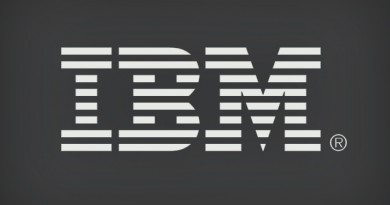Colo Provider Digital Fortress Adds Managed Cloud Services
Digital Fortress, a large privately owned colocation provider in the Seattle area, is expanding beyond its colo roots by offering a Hybrid Infrastructure Management service that covers Azure, Amazon Web Services, and customer-owned infrastructure.
The new services are aimed at helping mid-market companies move toward a more agile infrastructure. Digital Fortress said that it uses best practices, standardization, and automation to monitor new and existing workloads across IT infrastructure – wherever it is.
The service is comprised of monitoring, resolution, and optimization. Digital Fortress staff provides round-the-clock support to identify abnormalities or activity that could impact system health and performance. The company said its staff quickly attend to incidents, and documents them so they can be resolved quicker. And Digital Fortress will also optimize infrastructure and services based on advanced reporting tools, and help determine which cloud services are optimal based on performance and cost.
Mid-Market Clients Dabbling in Public Cloud
“One of the things we’ve realized is almost every single one of our customers in the mid-market is looking at implementing something that leverages the public cloud or they’ve already moved workloads out of our colocation facility,” Digital Fortress CEO Matt Gerber told The WHIR. “So, what we did about six months ago was we made a decision that it would be in our customers’ best interest and in our best interest to figure out a way for them to do that.”
While mid-market CIOs look to public cloud services to reduce their hosting costs and increase their agility, it also requires new skillsets and staff able to run these new infrastructures.
As a colocation provider, Digital Fortress had to bulk up its skills and staff to handle infrastructure outside of its data centers. “We had to hire a lot of really smart people who were AWS certified,” Gerber said. “We’re also changing the way we’ve structured our NOCs and we will have all of our Level 1 NOC technicians will complete an AWS assessment, and Level 2 NOC technicians will be system-operations certified to support both Azure and AWS environments.”
The company is already an Azure-certified partner, and is working to get employees certified in Azure. “It’s a lot of training,” he said.
He said that Digital Fortress’s Hybrid Infrastructure Management services also require a deeper relationship with customers than with traditional colocation.
“The traditional colocation business provides a ‘warm hands’ service,” he said. “But warm hands doesn’t involve monitoring the customer’s infrastructure 24/7 so there will be a much more intimate relationship with our customers because they’re essentially giving us the keys to their IT kingdom where we’re becoming a trusted partner and it will be our eyes on their infrastructure 24/7.”
The company has been building and testing its capabilities and procedures for the past three months with a pilot program involving select customers.
Colo Providers Need to Evolve
In many ways, the agility provided by public cloud services has been forcing colocation providers to evolve to remain relevant.
“You’re going to have to go one of two ways to remain relevant as a colocation provider – either you compete on scale and have to get very big very fast and service very large wholesale and enterprise colocation customers; or if you’re like us, you have to stay relevant by catering to the customers’ needs and moving up the stack,” Gerber said.
“We’ve seen in the last year a lot of regional, traditional colocation providers move up the stack but we feel a thing that they’re missing is the competency and the skillset to provide the public-cloud tie. When you look at what their customers are doing, the customers really want the ability to leverage the big public clouds in addition to private cloud providers too.” Digital Fortress’ new managed services seems to allow it to do just that.




